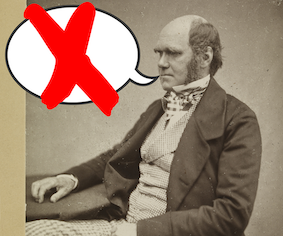| by Lorenzo Ricolfi "It is not the strongest of the species that survives, nor the most intelligent; it is the one most adaptable to change.” This quote is cool but it is often associated with Charles Darwin's Origin of Species when Charles never wrote that! Instead, it was formulated by Leon C. Megginson, Professor of Management and Marketing at Louisiana State University. (To read about this anecdote, click on this link). |
Well, it never came true. The World Health Organization declared the outbreak a Public Health Emergency of International Concern on the 30th of January 2020, 21 days after my landing in Australia. On the 31st of January, two Chinese tourists in Rome tested positive for the virus, and Italy was the first country in Europe to be affected by the pandemic. A month and a half later, the Italian army vehicles had to transport the dead out of the city of Bergamo as its crematorium struggled to cope. This disaster happened only a week after the World Health Organization officially declared COVID-19 a pandemic. That was the situation.
Australia at that time was in a bubble of its own, far removed from what was happening overseas. I was reading the news on the web, and it all seemed absurdly surreal. Virus? Wheezing and difficulty breathing? Social distancing? Masks? It was hard to assess and assimilate the news with reason and objectivity. And I had to take a decision now and immediately: return to my country or keep staying in Australia. How could I take such a decision lightly?
There were many factors to consider and the implications too. Italy was in full lockdown, and although I was worried about my loved ones, I decided to stay, not knowing when I would return. I would return when the situation improved and the pandemic had passed. Days turned into weeks and weeks into months, and I began to need work. I held about ten different jobs in the time that followed. I worked as a dishwasher, a waiter, a kitchen hand, a warehouse worker, a driver, a delivery guy and a carpenter. I had never done any of these jobs before in my life. Months turned into years, and I realized that I wasn't coming back anytime soon. Australia closed its borders. There were no more planes in the sky.
Meanwhile, while surfing the websites of various Australian universities, I found an exciting laboratory at the University of New South Wales in Sydney. As luck would have it, the lab was looking for a PhD student with my background. I immediately got in touch and, after devising a research proposal that matched my interests and the knowledge and skills of the lab, I applied for a scholarship from the Australian government to cover the PhD.
It is now the beginning of April 2022, it has been two years and three months since I landed in Australia, and I started my PhD a couple of months ago. The pandemic situation has improved thanks to vaccines, although the pandemic is not over. And I have still never returned home. Over the last two years, the changes in my life have been massive, but I am thrilled with where they have taken me, even though they were unplanned and presented me with some callous times and challenges.
The point of all of this is that although we constantly try to categorize, order, and simplify reality, it is permeated by the chaos in which change is the engine. We need order and stillness in our environment and minds, but we cannot avoid change. Instead, we must learn to be flexible enough to shape ourselves without breaking or losing our identity. It is a challenging game based on compromise and sometimes on acceptance and letting go.
The pandemic has abruptly put reality before us, where not everything goes as planned. But it also reminded us of one thing: there is nothing wrong with that. Plans in life are necessary, but their implementation is not to achieve a state of happiness. Instead, an idea and a plan can evolve into something completely different. This turning point may initially be seen as a failure, a crack in the wall of our lives. However, it is only after time that we realize that the plan was but one of many steps, rather than the dividing line between success and failure.




 RSS Feed
RSS Feed